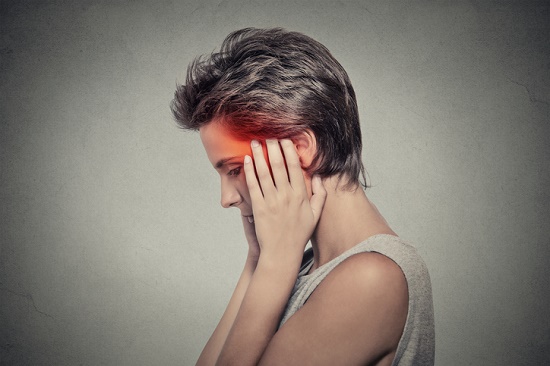
Though it’s true that there is at this time no scientifically-verified method to cure tinnitus, researchers are hard at work to discover one. In the meantime, several tinnitus therapy options are available that can provide substantial relief.
Think about it in this way. If you have a headache, you take Tylenol in spite of the fact that it doesn’t “cure” your headache. Pain relievers only make the pain disappear into the background to ensure that it doesn’t interfere with your day. Likewise, tinnitus therapies can help lower the intensity of symptoms so that your tinnitus has minimum influence on your daily life.
Seeing as every person reacts to tinnitus in a different way, there’s no one-size-fits-all treatment. You’ll need to work with your provider to discover the option that works best for you.
Here are many of those options.
Tinnitus Treatment Solutions
If you are suffering from tinnitus, you’ll want to examine the following treatment options with your hearing care or healthcare professional.
Treatment of the underlying ailment
While the majority of instances of tinnitus are not curable—and are a consequence of hearing loss or other non-reversible injury—some cases are the result of an underlying physical condition. You’ll want to rule these out before pursuing other treatment methods.
Potential physical causes of tinnitus include jaw joint issues (temporomandibular joint, or TMJ dysfunction), excessive earwax or other obstructions in the ear canal, head and neck injuries, and side effects to select medications.
General Health And Well-being
The severity of tinnitus symptoms can vary depending on all-around health. Taking steps to improve general wellness is, consequently, one thing tinnitus patients can get started on right away to lessen the level of intensity of symptoms.
Each patient is unique, and what works for someone else might not be right for you. The purpose is to experiment with different activities to find out what is most effective.
Activities that have demonstrated promise include instituting a healthy diet, getting lots of physical exercise, meditating, and participating in activities like cycling, which can conceal the sounds of tinnitus.
Hearing Aids
Tinnitus is often associated with hearing loss and hearing damage. In response to reduced stimulation from outside sound, the brain goes through maladaptive changes that trigger the perception of tinnitus.
By enhancing the magnitude of environmental sound, hearing aids can help mask the tinnitus, making the sounds of tinnitus less perceptible. Hearing aids additionally supply enhanced sound stimulation to the brain, which is thought to be neurologically favorable.
Sound Therapy
Sound therapy is simply the delivery of sound in the form of white noise, pink noise, or nature sounds to lower the perceived burden or severity of tinnitus.
Sound therapy functions by masking the tinnitus and additionally by retraining the brain to reclassify the sounds of tinnitus as trivial. This twofold effect can reduce the short and long-term severity of tinnitus.
Sound therapy can be provided through special tabletop devices, but also through portable multimedia devices and even through hearing aids. Medical-grade sound therapy makes use of individualized sounds that match the pitch of the individual’s tinnitus for the best results.
Behavioral Therapy
Remember that tinnitus is the perception of sound in the brain when no outside sound is present. The condition is, for that reason, highly subjective, and each person responds differently.
In fact, whether or not the person perceives tinnitus as life-altering or as no-big-deal is predominantly as a consequence of psychological tendencies and not to the intensity or pitch of the tinnitus. That’s why cognitive/behavioral solutions to tinnitus therapy have been proven to be highly effective.
A number of therapies exist, including Mindfulness-Based-Stress-Reduction (MBSR) and Tinnitus-Retraining-Therapy (TRT), which combines cognitive-behavioral-therapy with sound therapy.
Drug Therapy
While there are no current FDA-approved medications for tinnitus, antianxiety and antidepressant prescriptions are regularly used to manage the behavioral responses to tinnitus. These medications do not appear to impact tinnitus itself, but may offer much-needed relief if deemed appropriate by your doctor.
Experimental Therapy
The search for a tinnitus cure is ongoing. Many experimental therapies are in development or evaluation and newer techniques become available every year. If your tinnitus is severe, and you’ve realized very little benefit from existing therapies, you could be a candidate for one of these cutting edge treatment options.
Visit the Experimental Therapies page at the American Tinnitus Association website for more information.
Find Relief For Your Tinnitus
Tinnitus is currently being aggressively studied, with new findings and prospective treatment options reported every year. Even now, there are a variety of encouraging treatments that, while not offering a cure, can provide significant relief. You owe it to yourself to consider these options, stay positive and persistent in your tinnitus care, and work with your provider to refine your treatment plan for the greatest results.
